Mark Leonard’s World in 30 Minutes: Are Europe’s elections still safe?
ECFR’s director Mark Leonard speaks with ECFR Policy Fellows Stefan Soesanto, Kadri Liik and Gustav Gressel on Russia's interferences in Western politics. The podcast was…
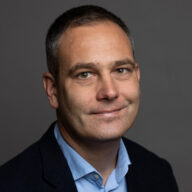
Senior Policy Fellow
Eastern Europe; Russia; armed conflict and military affairs; defence policy; missile defence; missile proliferation
German and English (fluent), Spanish and Polish (conversational)
Gustav Gressel is a senior policy fellow with the Wider Europe Programme at the European Council on Foreign Relations’ Berlin office. His topics of focus include Russia, Eastern Europe, and defence policy.
Before joining ECFR, Gressel worked as a desk officer for international security policy and strategy in the Bureau for Security Policy of the Austrian Ministry of Defence from 2006 to 2014, and as a research fellow of the Commissioner for Strategic Studies with the Austrian MoD from 2003 to 2006. He was also a research fellow with the International Institute for Liberal Politics in Vienna. Before his academic career he served five years in the Austrian Armed Forces.
Gressel holds a PhD in Strategic Studies at the Faculty of Military Sciences at the National University of Public Service, Budapest and a Masters Degree in political science from Salzburg University. He is the author of numerous publications regarding security policy and strategic affairs and a frequent commentator on international affairs. His opinions have appeared in media such as the New York Times, the Guardian, Die Welt, NZZ, Bild, the Diplomat, New Eastern Europe, Foreign Policy, Gazeta Prawna, Rzeczpospolita, Kyiv Post, the Moscow Times, Capital, the Telegraph, the Economist, Newsweek, Deutsche Welle, RTL, al Jazeera, TVP, TRT, Polskie Radio, RFI, FM4, Ukraine Today, and Radio Free Europe.
ECFR’s director Mark Leonard speaks with ECFR Policy Fellows Stefan Soesanto, Kadri Liik and Gustav Gressel on Russia's interferences in Western politics. The podcast was…
While Europe might take solace from the presidential election result, it should recognise that Austria’s Eurosceptic drift will not be halted by Van der Bellen
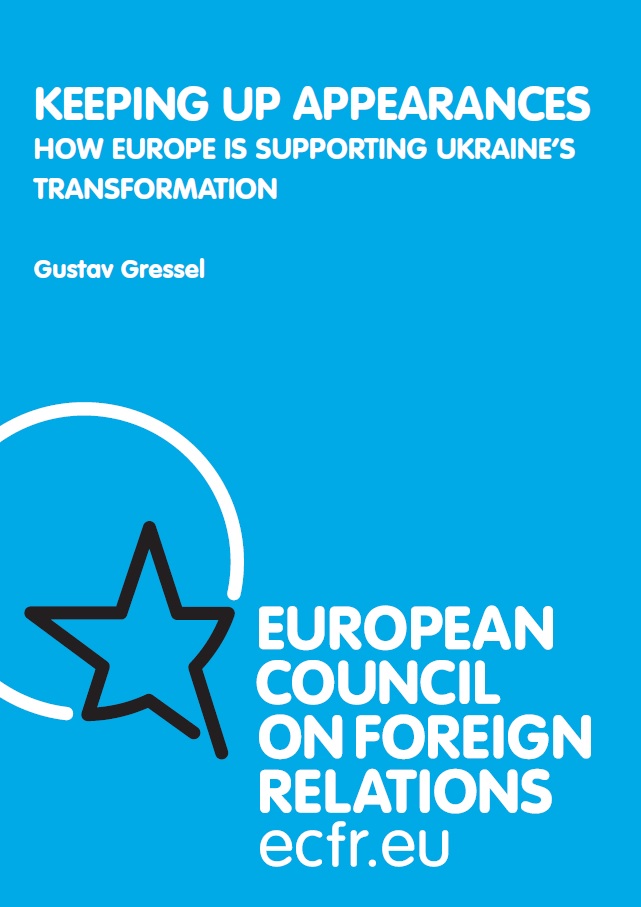
Reforms in key state institutions, such as the judiciary, have failed to deliver results
ECFR’s director Mark Leonard speaks with experts Andrew Wilson, Fredrik Wesslau and Gustav Gressel, about rising tensions between Russia and Ukraine in the Donbass, the Minsk agreement,…
In the face of large refugee inflows Germany’s insurgent parties are sympathising with Russia, even despite the country’s meddling in German domestic affairs.
For now, Germany can live with the results of the NATO summit in Warsaw. But if Germany's allies want an engaged partner on defence matters, they will need to engage in active public diplomacy to avoid German retrenchment.
NATO is set to enter a dangerous decade with Russia in which domestic instability coincides with a weak neighbourhood, but what can Europe do to mitigate the risk of Russian aggression?
The unexpected win for the FPÖ in Austria had eurosceptics across the continent proclaiming the righteousness of their cause, but the result betrays a deeper political malaise in Austrian society
At a certain point, Europe will have to decide wether it wants implementation of Minsk or reforms in Ukraine – it can't put its own weight behind both
What do we know about Russian military capabilities from the Syria conflict?
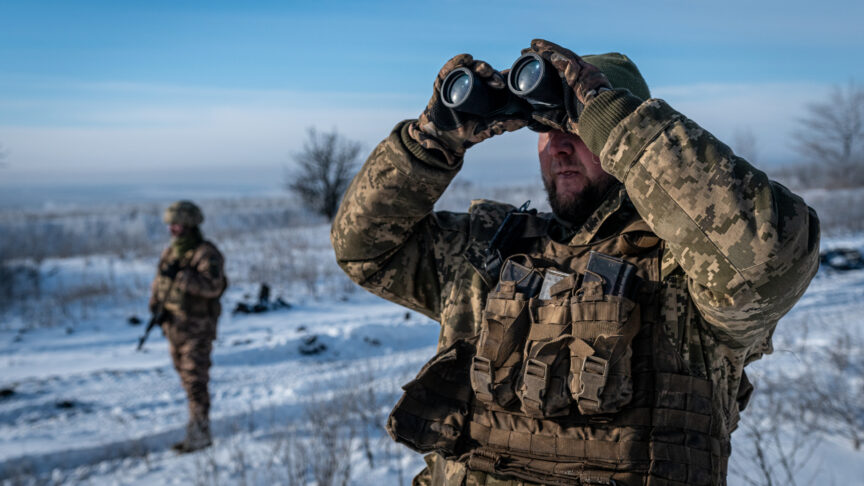
The Ukraine conflict is a war of attrition – that Russia is set to win. Europeans must act now to increase supplies, helping Ukraine not only survive, but prevail
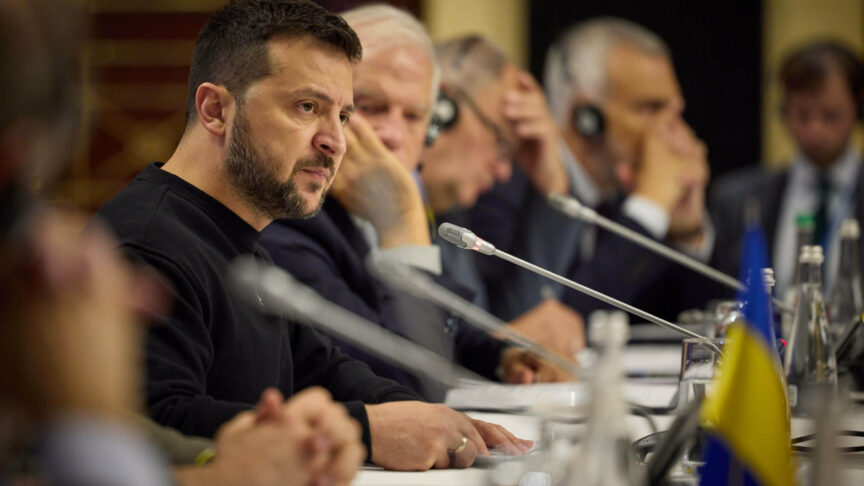
The EU and its member states need to make an urgent commitment to Ukraine’s security and long-term commitment to its European future. If they do not, they risk alienating the very Ukrainians they seek to support
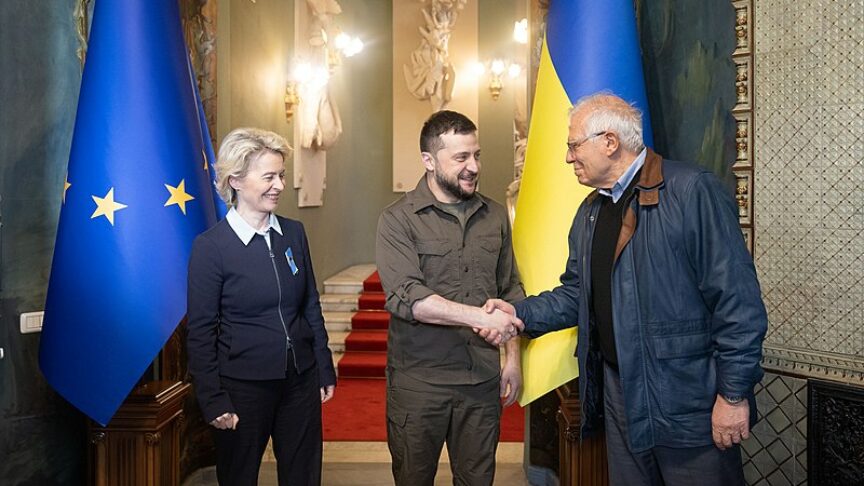
The EU should conclude a security compact with Ukraine. Such an agreement would help the country defend itself against Russia and maximise the effectiveness of European military support.
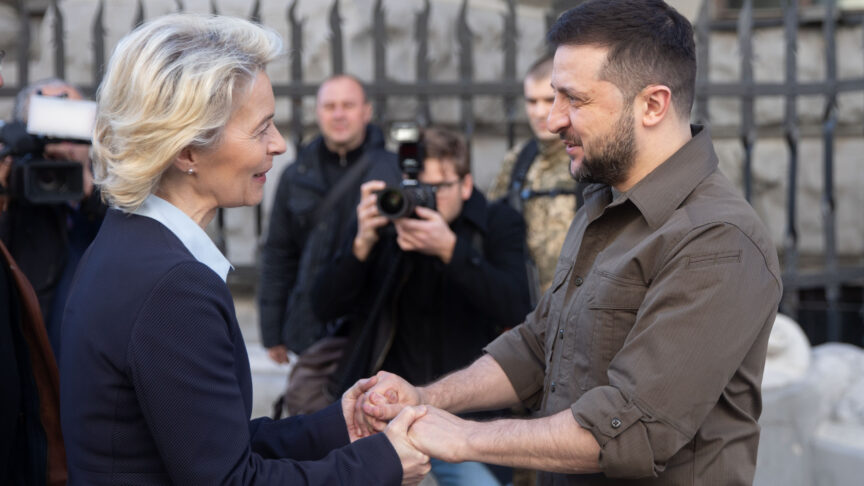
To signal their commitment to Ukraine, Europeans should agree a ‘long-war plan’ of assistance against Russian aggression. This would include a ‘security compact,’ security assurances, and economic and energy support.

Russia’s capacity to carry out large-scale military operations against Black Sea states allows it to coerce and extort them
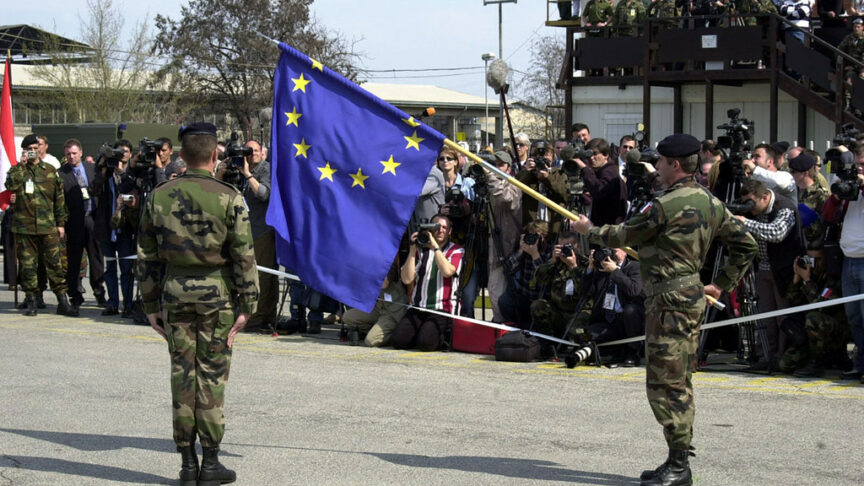
The EU’s work on its Strategic Compass should include debates on the special status states’ future role in European defence
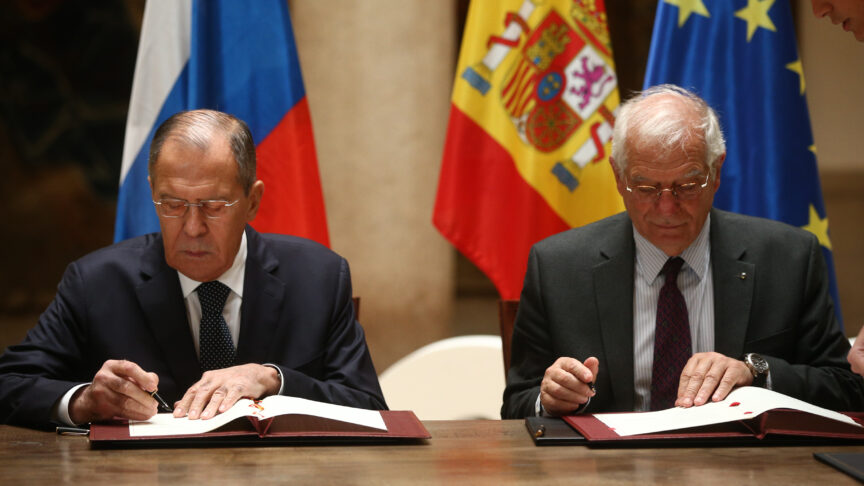
The bloc should reframe how it speaks of human rights and democracy, while developing closer security and military links with select neighbours
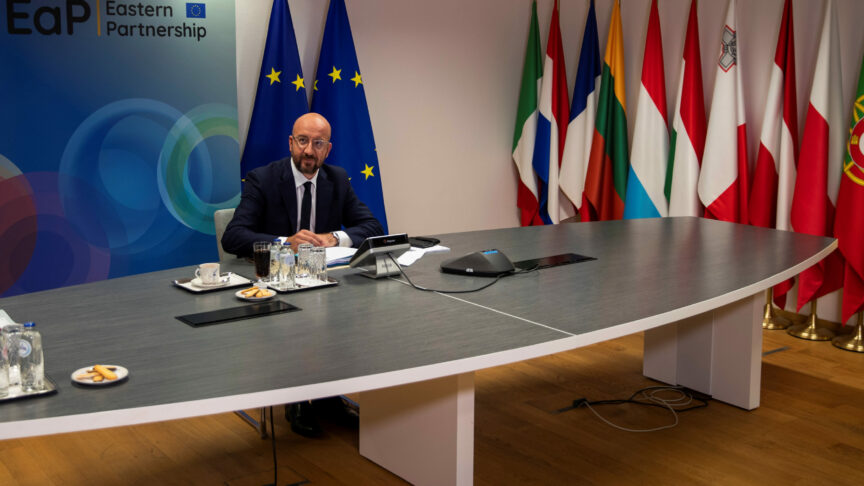
The EU’s tendency to shy away from security issues has helped make covert operations and military threats Russia’s tools of choice in the region
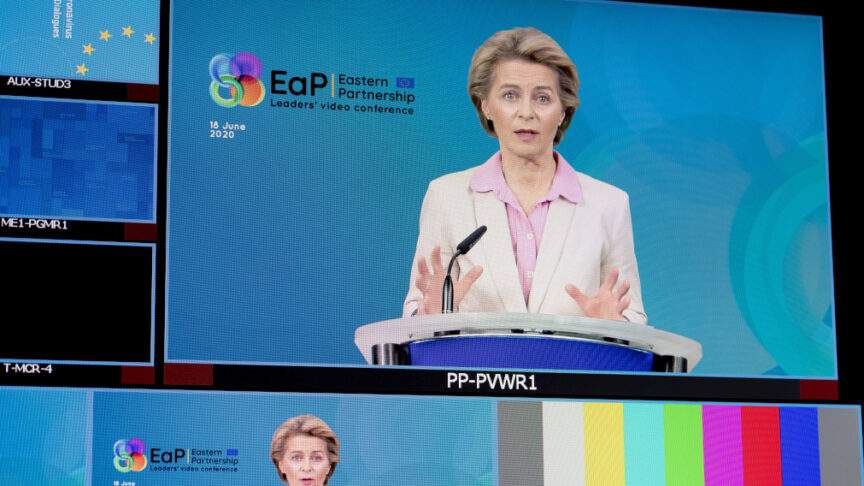
If the EU is to be more geopolitically influential in its own neighbourhood, it needs to start developing strategic security partnerships with key neighbours to the east and the south
The EU, US, and NATO must ensure that these services remain high in the minds of the Zelensky administration and of Rada members
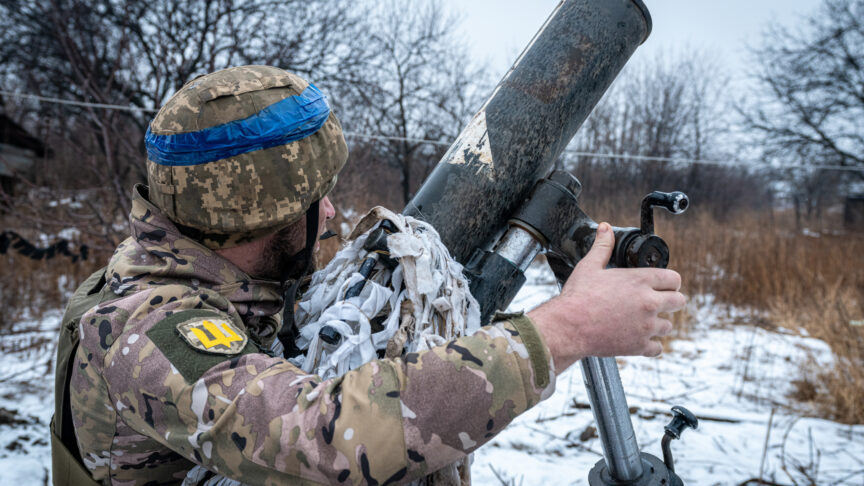
Russia has gained the upper hand in its war on Ukraine. To reverse Moscow’s progress, the West will need to invest more in supporting Kyiv. With this in mind, here are three scenarios for what could happen in 2024
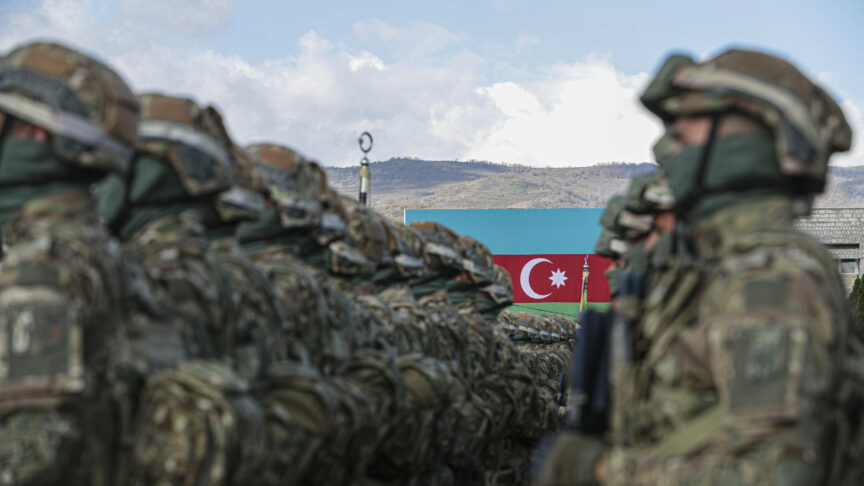
The question of Nagorno-Karabakh is unlikely to be discussed any time soon after Azerbaijan took control of the region in September. Europeans should now diplomatically engage with all sides to prevent further escalation, while supporting Armenia’s domestic political stability and strengthening its defence capabilities
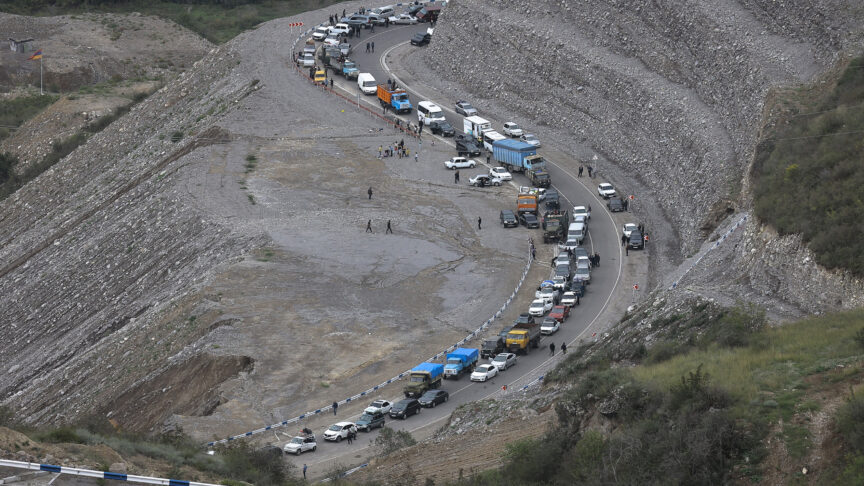
Geopolitical shifts created an opportune moment for Azerbaijan to reclaim Nagorno-Karabakh. With the current ceasefire on shaky ground, the EU needs to use the leverage it has to prevent further escalation
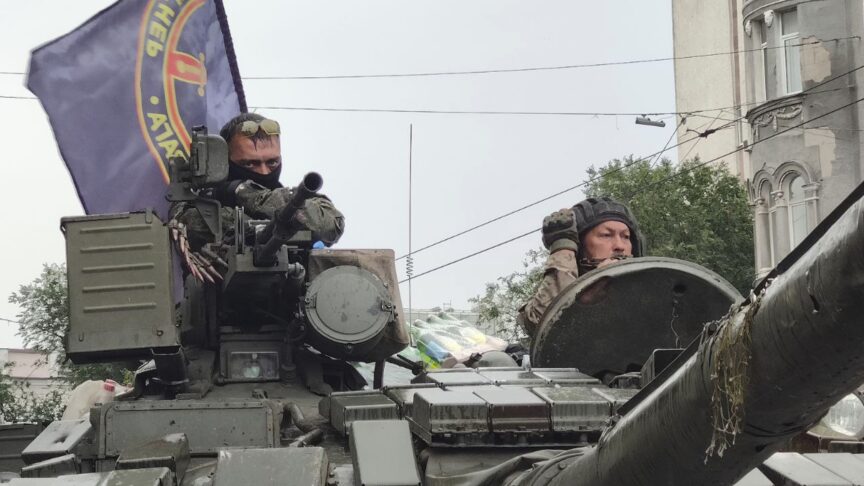
The Wagner mutiny showed that Western states cannot expect a challenge from within to end Russia’s war
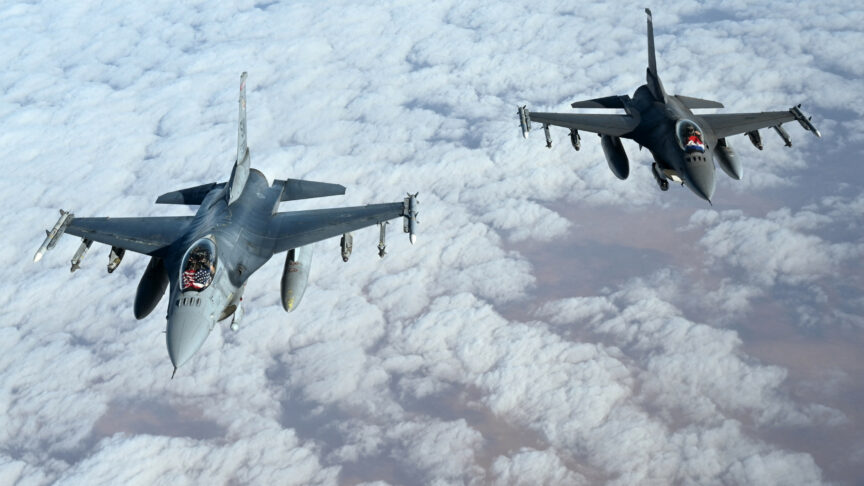
Ukraine needs fighter jets to counter Russia’s changing military approach. The US should learn from last year’s delay over tank deliveries and approve their release as soon as possible
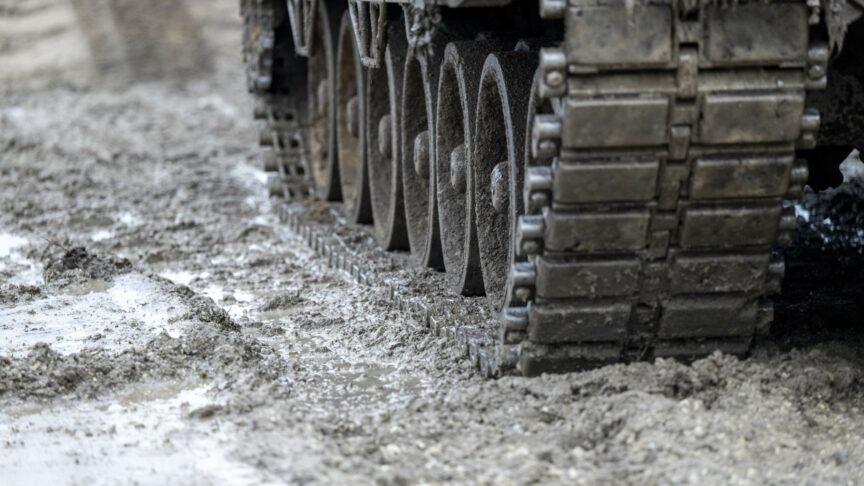
Military help for Ukraine is moving towards serious questions of logistics – but more countries still need to step forward. Here is how the next-stage coalition could look.
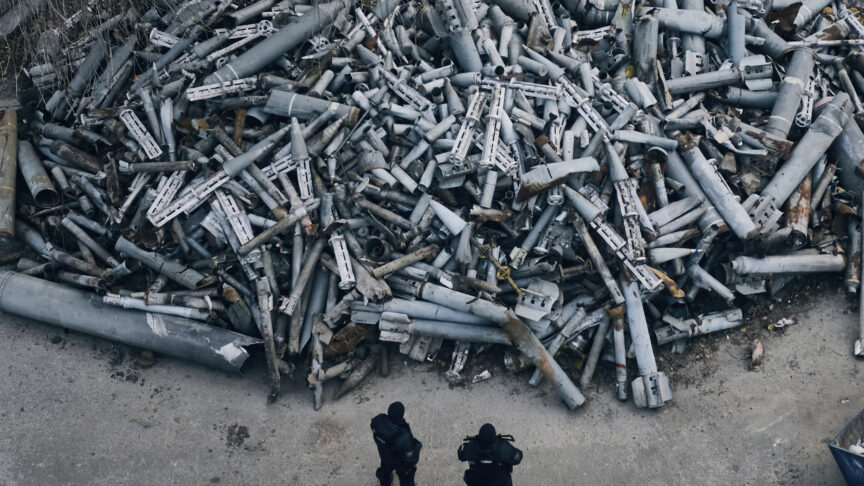
Russia is likely to make some progress in the first half of 2023, but it may lack the capability to hold on to its gains
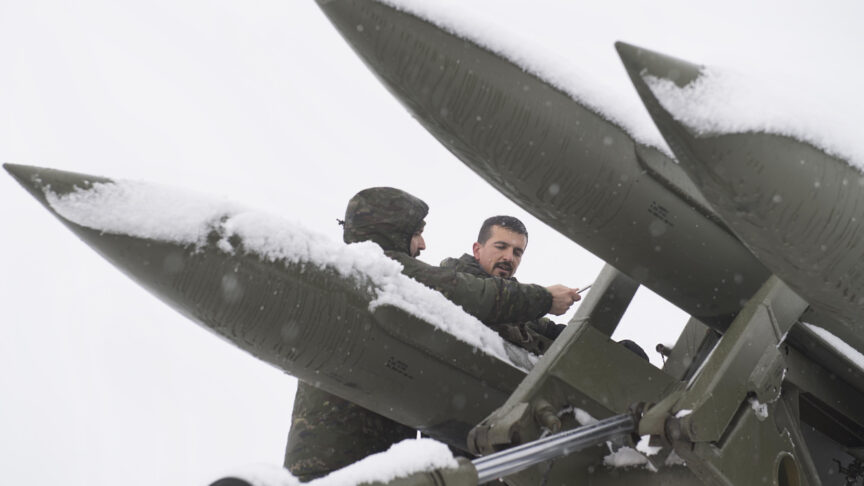
European leaders must shift from supplying only short-term military support for Ukraine to providing long-term strategic assistance
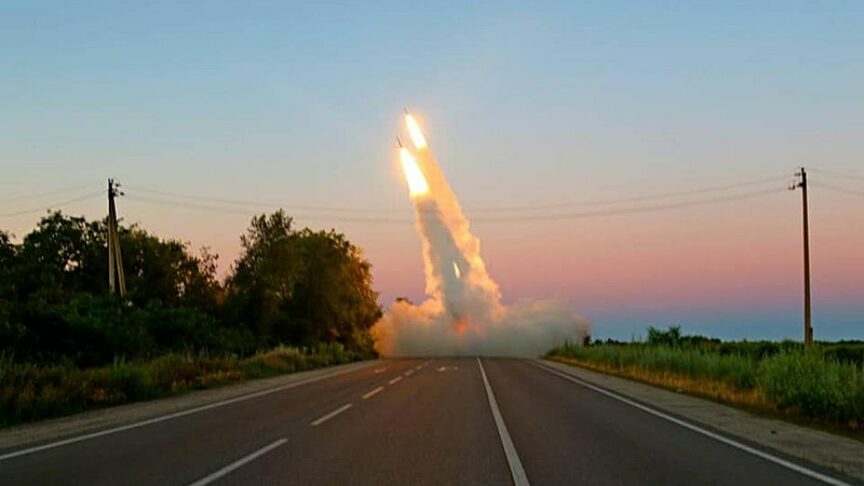
Putin’s mobilisation is unlikely to change the direction of the war – if Ukraine’s Western allies remain steadfast in their support
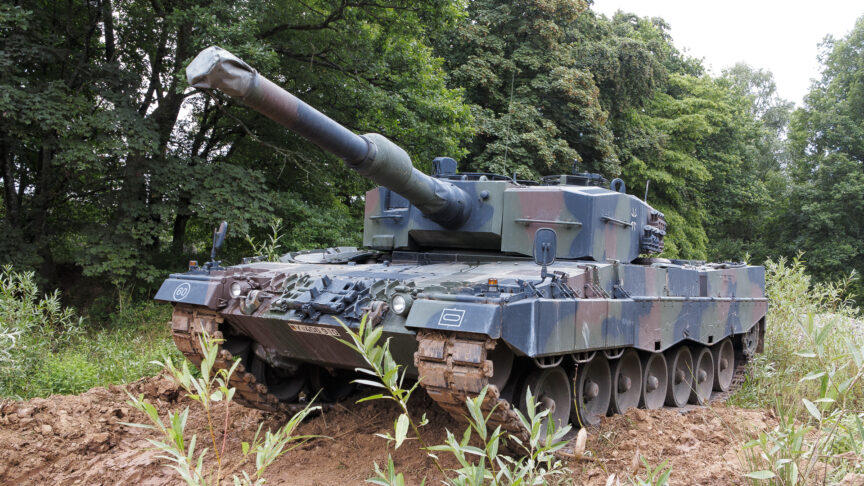
Ukraine needs to move to a new phase of the war if it is to reclaim its territory occupied by Russia. A European plan to supply Leopard tanks should be at the heart of this effort.

Mark Leonard welcomes Gustav Gressel and Jeremy Shapiro to understand what factors will shape a third year of war in Ukraine

In this week’s episode, Jeremy Shapiro welcomes Michael Kofman and Gustav Gressel to discuss the military situation in Ukraine
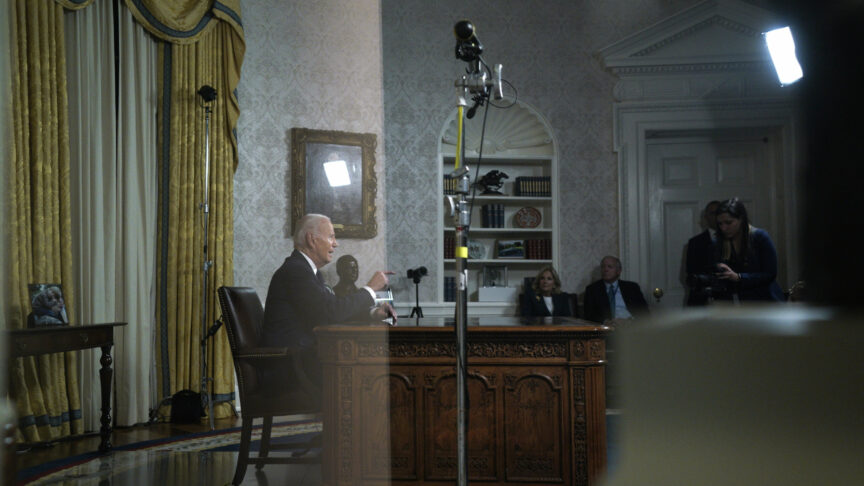
Jeremy Shapiro welcomes Gustav Gressel and Kirill Shamiev to talk about the consequences of the war in Gaza for Ukraine

Mark Leonard is joined by Gustav Gressel to talk about sending fighter jets to Ukraine
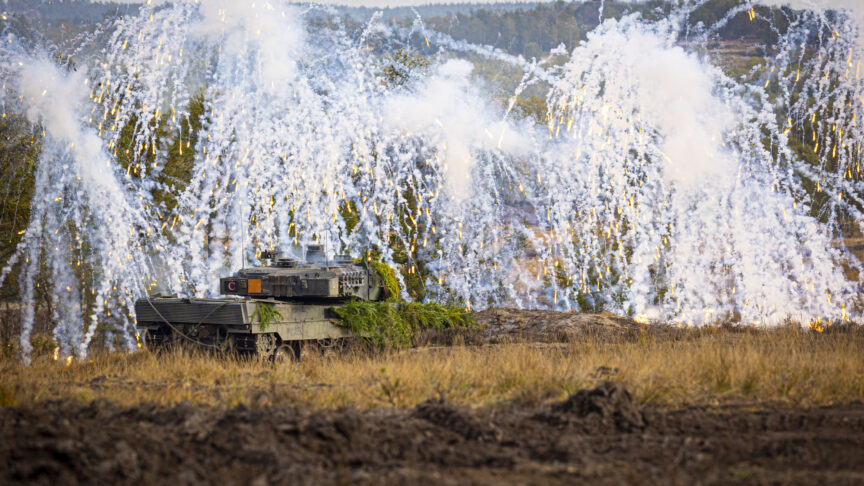
Mark Leonard, Camille Grand, Gustav Gressel, Jana Puglierin, and Jeremy Shapiro discuss what the Leopard 2 decision means for the war in Ukraine

Mark Leonard is joined by ECFR’s Piotr Buras, Gustav Gressel, Kadri Liik, and Jeremy Shapiro to describe and debate the potential military, security, and economic aspects of the long-war plan
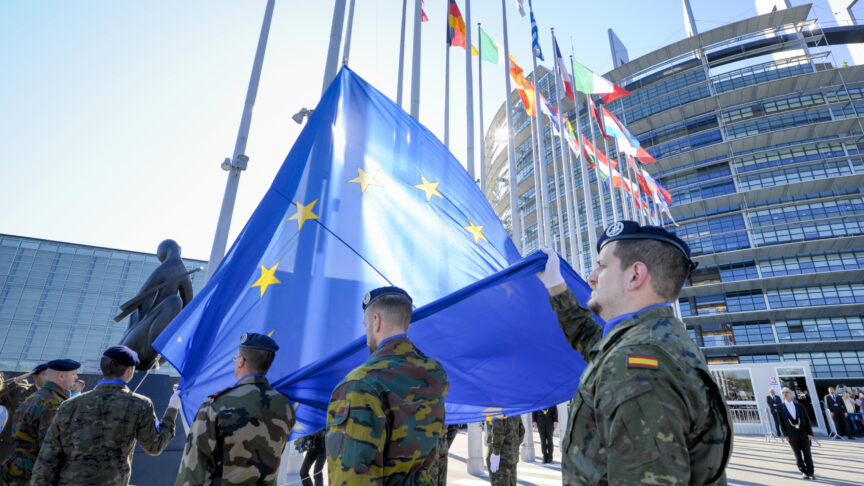
What are the biggest challenges in building greater European sovereignty in defence? And how will this effort be funded?
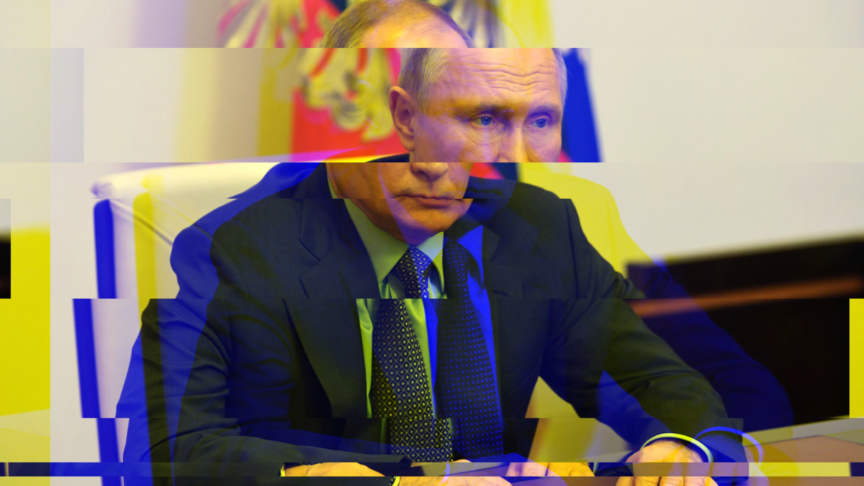
As the situation at the Ukrainian border escalates, Mark Leonard and his guests talk about the recent developments and the state of play at the ground
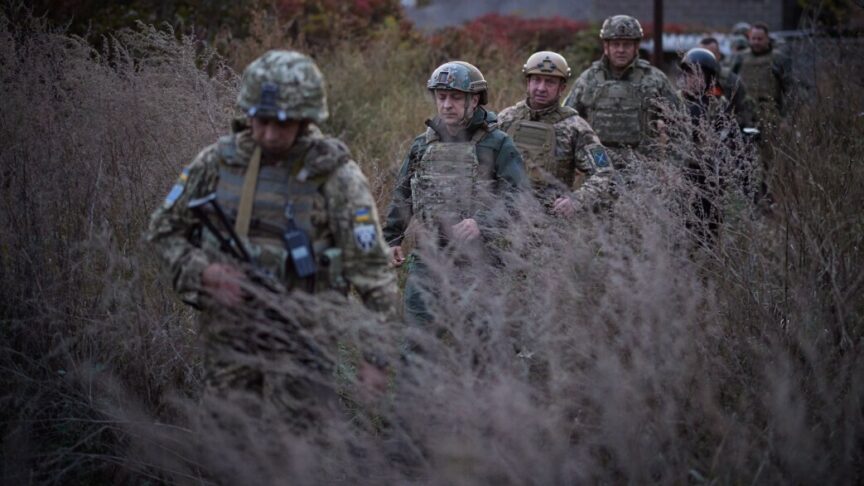
How serious is the Russian troop build-up near the Ukraine border? And what should NATO do about it?
How is Russia dealing with covid-19? What impact does the pandemic have on the other underlying political issues in Russia – such as the change…
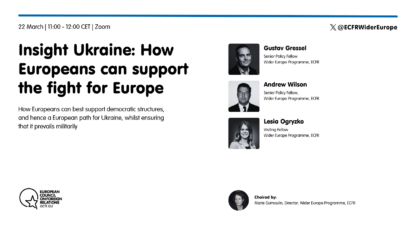
In challenging times for Ukraine, despite public appraisals following the second anniversary of the Russian invasion of Ukraine and the ten-year mark of the Russian…
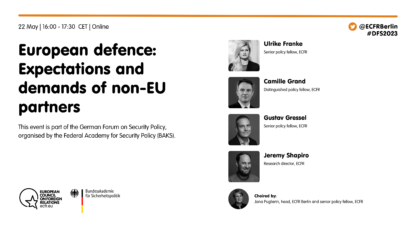
This event is part of the German Forum on Security Policy, organised by the Federal Academy for Security Policy (BAKS).
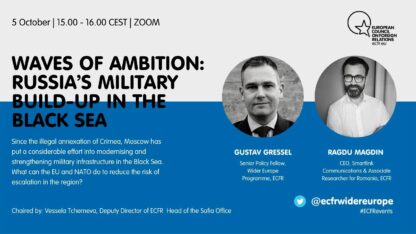
What can the EU and NATO do to reduce the risk of escalation in the region?
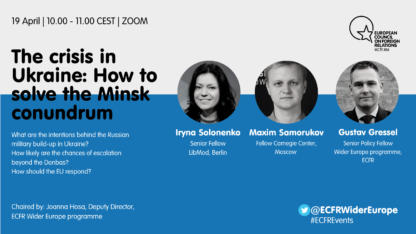
What are the intentions behind the military build-up? How likely are the chances of escalation beyond the Donbas? How should the EU respond?